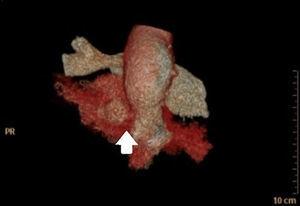Journal Information
Point of view
Nitric oxide as the third respiratory gas. A new opportunity to revisit the use of oxygen therapy in clinical practice
Óxido nítrico como tercer gas respiratorio. Una nueva ocasión para revisar el empleo de oxigenoterapia en la práctica clínica
José Manuel Valencia-Gallardoa,
, Felipe Rodríguez de Castrob, Jordi Solé-Violánc, José Carlos Rodríguez-Gallegod
Corresponding author
a Department of Respiratory Medicine, Hospital Universitario de Gran Canaria Dr. Negrín, Las Palmas de Gran Canaria, Spain
b Professor of Medicine, Department of Medical and Surgical Sciences, School of Medicine, University of Las Palmas de Gran Canaria, Spain
c Intensive Care Unit, Hospital Universitario de Gran Canaria Dr. Negrín, Las Palmas de Gran Canaria, Spain
d Department of Immunology, Hospital Universitario de Gran Canaria Dr. Negrín, Las Palmas de Gran Canaria, Spain




